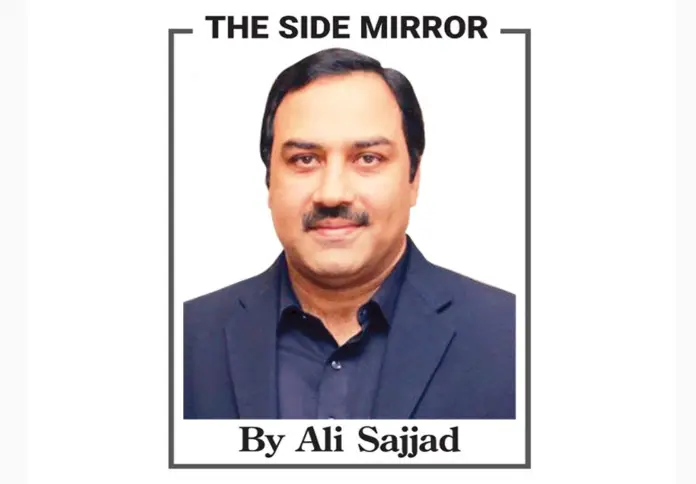A man’s past is that no one can change. But past can be forgotten and lessons can be learned.
This is what Nawaz Sharif wants to do with his past.
In a recent address to the election ticket candidates of the Pakistan Muslim League-Nawaz (PML-N) in Lahore, former Prime Minister Nawaz Sharif raised important questions about his expulsions in 1993 and 1999, urging the need to understand the reasons behind these decisions. He expressed concerns about certain elements that, according to him, disrupted the progress of Pakistan during those times.
His statements where demands reflections over his past governments always draw criticism from certain quarters as they deem it Mian Sahib’s ‘revenge’ policy.
Come on! Whenever Mian sahib highlights the elements who disrupted his governments, he is inviting discussion on challenging circumstances faced by the nation today; he calls for giving importance to illegal actions of the past so that nothing such misadventures occur in the future. He calls for prayer to overcome difficulties. During his address, Nawaz Sharif took a moment to reflect on the past four years, noting the significant economic challenges that the country has encountered. He contrasted this period with his own time in office, asserting that the economy was more robust, and development initiatives were flourishing.
Drawing attention to the year 2019, Nawaz Sharif pointed out that this marked the beginning of economic disorder, and by 2022, the country found itself grappling with widespread issues. He underlined the interconnected nature of stability, stating that when the currency faces instability, it has a cascading effect on all aspects of society.
Nawaz Sharif is a man of economic progress. He never forgets the economic development which took place during his tenure.
In this address, the former prime minister passionately conveyed that progress was a hallmark of his government’s tenure. However, he lamented the current state of affairs, indicating that the instability in the economy had disrupted the upward trajectory the nation once experienced.
Despite being out of the public eye, Nawaz Sharif said, he and his party remained close to the hearts of the people. He acknowledged the importance of not forgetting friends and colleagues, emphasizing that they have consistently remembered and cherished those who stood by them.
In this reflection on the past and observation of the present, Nawaz Sharif positioned himself as a concerned leader deeply invested in the well-being of the nation. His call for understanding the circumstances of his past expulsions and his focus on the economic challenges of the present underscored the gravity of the issues he believes Pakistan is facing. As the country navigates through these complexities, Sharif’s words serve as a reminder of the need for unity, prayer, and a collective effort to overcome the hurdles that lie ahead.
While Mian Sahib is living in the past, Pakistan People’s Party Chairman Bilawal Bhutto Zardari is in rage. He is attacking Nawaz Sharif. Now he has thrown down the gauntlet, asserting that former prime minister Nawaz Sharif has been “selected” three times and now faces the challenge of proving his election for a fourth term. Speaking at a convention for People’s Party workers in Timurgarh, Bilawal Bhutto Zardari accused PML-N and PTI of seeking political revenge through the upcoming election. Bilawal challenged Sharif to once again strive for a two-thirds majority, questioning the potential consequences should he achieve it for the fourth time.
Concluding his address, Bilawal shared a message for Nawaz Sharif, urging him to abandon “selection politics” and embrace “election politics.” This call for a shift in political approach signifies Bilawal’s stance against what he perceives as a pattern of political selections rather than genuine electoral processes.







